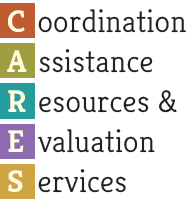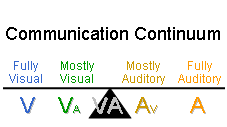Early Intervention for Children who are Deaf or Hard of Hearing
Information for Early Intervention Professionals
Early Intervention matters!
“Early Intervention services represent the purpose for the entire EHDI process. Screening and confirmation that a child is Deaf or hard of hearing are largely meaningless without appropriate, individualized, targeted, and high-quality intervention.” (Cite JCIH 2007 Supplement)
Welcome Early Intervention professions. We are glad you are here.
We have a team ready to support each EI professional in partnership to:
- Increase knowledge, skills, and capacity in understanding the unique needs of infants and toddlers who are Deaf or hard of hearing.
- Increase enrollment in Birth to Three program at the time of initial referral (i.e., right away after identification).
- Support best outcomes for the family and the child.
- Enhance family attachment, bonding, and advocacy for their child now and in the future.
What is WSB CARES?

CARES team members join county Birth to 3 Program teams state-wide to support children and families.
CARES team members bring experience and information specific to children who are deaf or hard of hearing. This specialized intervention, in partnership with your Birth to 3 Program team’s expertise, can be critical for best outcomes now (ages 0-3) and in building a foundation for later language, social, and academic milestones.
CARES team members participate in intake, evaluation, joint visits, IFSP updates, and transition meetings alongside a family’s Birth to 3 Program primary service provider.
Discussion Points
- Each year in Wisconsin, approximately 110 children are identified with a hearing difference (WE-TRAC). Hearing loss is one of the most common conditions identified at birth (CDC, 2020).
- More than 90% of babies who are deaf or hard of hearing are born to parents who have typical hearing and often do not have experience navigating new decision-making around deafness or hearing levels (NIH, 2021).
- Increased family involvement in their child’s intervention and heightened parent-child responsiveness is linked to strong language and social outcomes (Mahoney, 2009).
- Outcomes for young children and their families are enhanced when providers have specialized training specific to working with infants/toddlers who are deaf or hard of hearing (JCIH, 2013).

Build family to family relationships
Standardize referral mechanisms (WE-TRAC to PPS)
Use a fax-back form to alert the Medical Home at the time of enrollment
Include the EHDI program in your disclosure agreement for release of information so that information can be shared
Integrate communication outcomes in every IFSP
Confirm the hearing status of every child with a related condition
Identify every failed appointment as an opportunity to act and learn
WSB CARES Orientation Recordings
WSB Overview & Introductions (9:46): https://vimeo.com/manage/videos/678799864/8d0f163354
WSB CARES Process (14.13): https://vimeo.com/706648657/36de79f9c9
Assessment Protocol (9:18): https://vimeo.com/manage/videos/678794849/8ee9e9ed98
CARES Beginnings (4:13): https://vimeo.com/706655322/df16f25f21
GREATs (3:19): https://vimeo.com/687202367/9028a0a1de
Program Evaluation (2:12): https://vimeo.com/686343160/3e5e31edb8
Birth to 3 Program Guidance (13:09): https://vimeo.com/754445112/54bdecc42d
Birth to 3 Program Guidance in ASL(13:20): https://drive.google.com/file/d/1Qy6XOEN_OjKx6PZPODSaFXKYSvEzZfup/view
ODDACE (27.49) Meeting Recording (Access Passcode: J^L3sz4P): https://zoom.us/rec/share/RMINqbeEzropZrmWxZCH8tkFIHjg-tkczdw4sumj11KthFQldNL9cKx8RIhpvh5h._Xxs4EfkqDwJdz0C
Best Practices Guidelines
The Joint Commission on Infnat Hearing (JCIH) created 12 goals to define high quality intervention for children who are Deaf or hard of hearing, birth to 3 years.
How do these 12 goals provide a framework for EI providers here in Wisconsin?
- Timely and coordinated entry into Early Intervention programs.
- Hearing screening in newborns creates an opportunity for support but it does NOT guarantee the best possible outcomes.
- Audiologists send a referral to the child’s home county Birth to 3 Program.
- Enrollment in early intervention by 6 months of age is recommended for ALL children with any type/configuration of a permanent hearing difference.
- Timely access to Service Coordinators who have specialized knowledge and skills
- JCIH Guidelines provide a list of topics professionals first reaching out to families must be able to address if parents have questions
- LINK
- CARES team EI Coordinator can join initial phone call or provide coaching ahead of time with the goal of increasing enrollment.
- In WI, 50% of children who have a hearing difference are NOT enrolled in early intervention services.
- Why enroll in EI brochure LINK
- EI Providers have core knowledge and skills to optimize the child’s development and the child/family well-being.
- Intervention services to teach ASL will be provided by professionals who are native/fluent ASL skills.
- Intervention services to develop listening and spoken language skills will be provided by professionals with specialized skills and knowledge
- Children with additional disabilities benefit from a team of professionals supporting child/family outcomes.
- Up to 40% of children who are Deaf or hard of hearing also have other disabilities.
- Families have access to specialized professionals in Teaming framework to target outcomes specific to hearing levels, communication and language.
- Providers are sensitive to the diverse needs of families and are experienced in meeting those needs.
- All children should have their progress monitored every 6 months that includes a protocol for assessment of language (spoken or signed) and the modality of communication (auditory, visual, AAC).
- Ensuring each child is making progress as expected.
- What is language deprivation? LINK
- ALL children identified with a permanent hearing difference are automatically eligible for early intervention services in Wisconsin.
- Populations more likely to decline EI services include slight/mild hearing levels, unilateral hearing losses, auditory neuropathy, fluctuating or progressive hearing levels. EI Professionals work hard to ensure no families “fall through the cracks”.
- Parents are active participants in the Wisconsin EHDI system.
- Access to other families who have children who are deaf or hard of hearing.
- Parents Reaching Out (PRO’s)
- GrassRoot Engagement A… Training (GREAT’s)
- Adults and young adults who are Deaf or hard of hearing will be active participants in the Wisconsin EHDI system.
- Sound Futures
- GREAT’s Young Adults
- All families will have support, guidance, and mentorship from individuals who are Deaf or hard of hearing.
- Communication opportunities are presented in an unbiased manner
- Deaf culture and connection to the Deaf community
- Families receive EI services that represent best practices
Blank
Open space
Blank
Open space
Blank
Open space
Blank
Open space

Debra Cushner, Julie Mitchiner, Debra Nussbaum: Laurent Clerc National Deaf Education Center, Gallaudet University
Early Intervention Best Practice:
Families are encouraged to explore all communication options and receive unbiased support.
“Assessment must be performed by qualified evaluators. Recommendations should be based on results of assessments as they relate to the impact of hearing loss on communication/language
/literacy and on academic and social /emotional competency”
-National Association of State Directors of Special Education, Inc. (2006)
“Our early interventionist taught us how to read an audiogram, how to care for hearing aids, how to develop her hearing ability, how to find opportunities to learn language in her everyday routine, and how to effectively use English with our daughter. Our Deaf Mentor took away our fear of what our daughter’s life might be like, guided us into the Deaf world, helped us understand Deaf culture, taught us to effectively use American Sign Language, and gave us insight into our daughter’s life that helped us love, appreciate and accept her. We believe that we are now equipped to help our daughter have the best of both the Deaf world and the Hearing world. We are so grateful that we had the benefits of both of these wonderful people in our lives.”
– Dianne & Ron, Parents of a Daughter with Hearing Loss
Policies and Procedures
Joint Committee on Infant Hearing-2007 Position Statement
Supplement to the JCIH 2007 Position Statement: Principles and Guidelines for Early Intervention After Confirmation That a Child Is Deaf or Hard of Hearing
Determining Birth to 3 Eligibility for Children who are Deaf or Hard of Hearing
Early Childhood Licensure Program Guide for Deaf and Hard of Hearing
Early Intervention Service Provider Qualifications
The SLP and Early Intervention with Infants and Toddlers with Hearing Loss
Assessment Tools
Parent Skill Building
Transition from 0-3 Services to School Services
Tools for Improvement
Assure Care in a Medical Home
Engage Families as Partners
Connect to Community Resources
AEIOu Project: Description of the Wisconsin Assessment of Early Intervention Outcomes Project
National Early Childhood Assessment (NECAP) Project
Assessment tools for kids under Age 3.
Continue Skill Building
Add a Wisconsin Sound Beginnings CARES Specialist to your IFSP Team.
Learn how Wisconsin Sound Beginnings can Support Birth to 3 Programs Statewide
Diagram of CARES Specialist services and supports for Birth to 3 Programs.
- Sample Summary of Birth to 3 Program services with a CARES Specialist.
Request a child specific Birth to 3 Consultation from a D/HH Expert
Request a Birth to 3 Program In-service from a D/HH Expert
Link to a PowerPoint: Can You Explain My Child’s Audiological Report?
By K. Ditty and K. Clark
Glossary of Terms to talk about hearing, causes of hearing loss and hearing aid devices.
Learn about the Function of the Ear
Hearing Aid Listening Check: A video designed for parents and other caregivers.
Training Opportunities
Annual Statewide Professional Conference, specifically for professionals that work with children who are hard of hearing, deaf, deafblind, or deaf with additional disabilities. The conference offers professionals the opportunity to:
-
meet other professionals around the state
-
learn from nationally recognized presenters
-
participate in educational workshops that will impact students’ academic and social emotional programming
Staff from Birth to 3 Programs, Teachers of the Deaf/Hard of Hearing, Educational Interpreters, Early Childhood Educators, Special Educators, Speech Language Pathologists, Educational Audiologists, Pupil Services Staff and Administrators are encouraged to attend. Undergraduate and graduate level credits are offered for this event. Professionals who attend this conference are invited to join families for dinner at the Family Conference, which follows immediately after the conclusion of the Professional Conference.
“Parents, caregivers, professionals, and members of the Deaf community recognize the need for a greater number of qualified professionals and improved service provision”
– The National Agenda: Moving forward on achieving educational equality for deaf and hard of hearing students (2005)
Oliver was fitted recently with an FM System, loaned to us by the WISHES Program. Our providers were skeptical because he was so young and attended a daycare, not a school setting where they are typically used. However, Oliver’s daycare teachers were so excited to share the profound changes they witnessed in him. The first day that he accessed sound through the FM he went from communicating sporadically in 2 word phrases, to speaking in 4-6 word sentences. He went from looking at other children for cues to know what to do, to following directions because he can now hear them. He went from being quiet at circle time, to full participation. With the benefit from the FM System, he quickly turned into a confident little boy!”
– Alicia Boeme, Oliver’s mother
Improvement in Action
The Importance of Quality Improvement in Early Intervention (01:47)
An Interview with Chris Kometer (text version)
“Our early interventionist taught us how to read an audiogram, how to care for hearing aids, how to develop her hearing ability, how to find opportunities to learn language in her everyday routine, and how to effectively use English with our daughter. Our Deaf Mentor took away our fear of what our daughter’s life might be like, guided us into the Deaf world, helped us understand Deaf culture, taught us to effectively use American Sign Language, and gave us insight into our daughter’s life that helped us love appreciate and accept her. We believe that we are now equipped to help our daughter have the best of both the Deaf world and the Hearing world. We would have been cheated if we hadn’t had the benefits of both of these wonderful people in our lives.”
– Dianne & Ron, Parents of a Daughter with Hearing Loss
Improvement in Action
Enrollment Data in EI Before and After Qualtiy Improvement